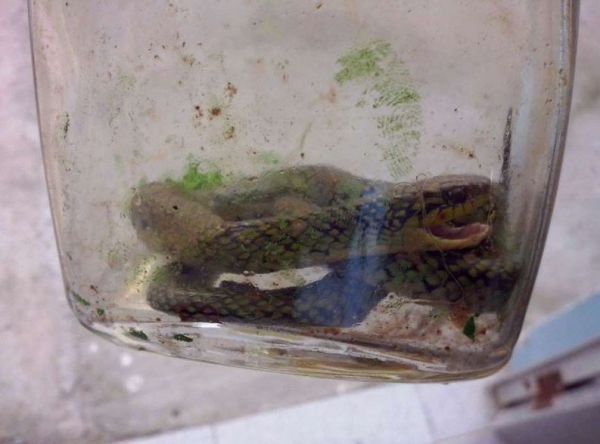Had enough yet?
Charles Clarke entered the Cincinnati/Northern Kentucky International
Airport last February eager to go back to his mother after a months-long
visit with relatives. But instead of a quick, easy trip home to
Orlando, Clarke lost his life savings — $11,000 in cash — to law
enforcement officials who never even proved he committed a crime.
Clarke, a 24-year-old college student, said losing that $11,000 was
"devastating." He's been forced to live with his mom, trumping his plans
to move closer to school. He's fallen back on other family for
financial support. And he had to take out loans for school instead of
paying for it up front — for which he's still in debt. "It's been a
struggle for me," Clarke, who's now fighting in court to get his money
back, said.
But law enforcement officials may have been working within the confines
of the law when they took Clarke's money. Under federal and state laws
that allow what's called "civil forfeiture," law enforcement officers
can seize and keep someone's property without proving the person was
guilty of a crime. They just need probable cause to believe the assets
are being used as part of criminal activity, typically drug trafficking.
Police can then absorb the value of this property — be it cash, cars,
guns, or something else — as profit: either through state programs, or
under a federal program known as Equitable Sharing that lets local and
state police get up to 80 percent of the value of what they seize as
money for their departments.
So police can not only seize people's property without proving
involvement in a crime, but they have a financial incentive to do so.
People can get their property back through court challenges, but these
cases can often be very expensive and take months or years.
It's these laws that law enforcement officials cited in taking Clarke's
cash, and in seizing thousands of other people's property across the
country. But Clarke's story shows just how flimsy the initial basis for
taking someone's money can be — starting with, simply, how his checked
luggage smelled.
Police say Clarke's bag smelled like marijuana
The government is mainly basing its forfeiture of Clarke's $11,000 on
one claim: His checked bag and money smelled like marijuana, so,
according to law enforcement, the money was very likely obtained or
meant for illegal drug activity.
A spokesperson for the US Attorney's Office of the Eastern District of
Kentucky said it couldn't directly comment on a case with pending
litigation, but he pointed to a Drug Enforcement Administration (DEA)
agent's affidavit outlining why police felt justified in seizing
Clarke's cash.
The story of what happened at the airport was pieced together with
Clarke's account, the affidavit, and other court documents provided by
the Institute for Justice, a national nonprofit that runs
EndForfeiture.com and is helping Clarke get his money back from law
enforcement.














!['Family praying at the table' [Shutterstock]](http://www.rawstory.com/wp-content/uploads/2015/11/Family-praying-at-the-table-Shutterstock-478x257.jpg)




















